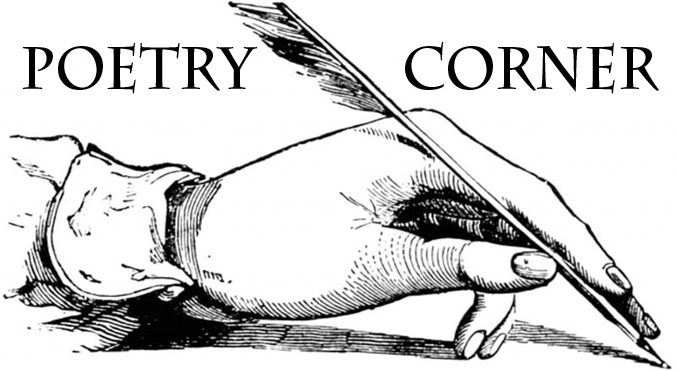
Anacoluthon are loosely held expressions connected by feeling as opposed to sequence of logic. The anacoluthon grammatical form proves useful in this poem because of its theme–madness. Included in the poem is an excerpt from When lilacs last in the dooryard bloom’d (Whitman).
This poem concludes with “What’s the use of crying?….Just smile,” a fitting nostrum of desistance.
I am locked up in six walls.
The culpable containment scratching the pane,
trying not to crawl like a bug.
Time rounds up and squares off. It’s too late
to to to flail and shout out I can’t find it.
there are seven walls. I’m so lost.
Somnambulant constriction. Paralysis. Hypnogogic
I Can’t move. Hypnopompic.
Scorching sun, cursed morning. Who are you when
O powerful western fallen star!
O shades of night—O moody, tearful night!
O great star disappear’d—O the black murk that hides the star!
O cruel hands that hold me powerless—O helpless soul of me!
O harsh surrounding cloud that will not free my soul…”
Unctuous wet sliding and smear.
I can’t move—there are so many walls.
My neck stiffens.
No feeling
No thought
No confusion
No anger
Only madness.
Quem deus perdere vult, prius dementat
“Whom the Lord wishes to ruin, he first deprives of reason.”
(Boswell’s Johnson, 1783.)
Smile by Nat King Cole

Smile though your heart is aching
Smile even though it’s breaking
When there are clouds in the sky, you’ll get by
If you smile through your fear and sorrow
Smile and maybe tomorrow
You’ll see the sun come shining through for you
Light up your face with gladness
Hide every trace of sadness
Although a tear may be ever so near
That’s the time you must keep on trying
Smile, what’s the use of crying?
You’ll find that life is still worthwhile
If you just smile
That’s the time you must keep on trying
Smile, what’s the use of crying?
You’ll find that life is still worthwhile
If you just smile.
Songwriters: Charles Chaplin / John Turner / Geoffrey Parsons

